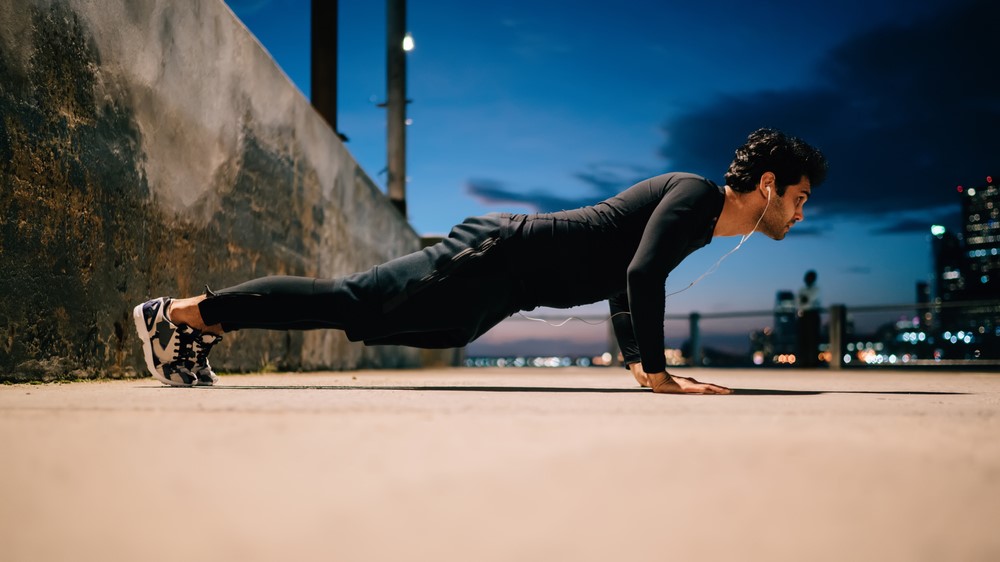This is the best time to exercise for sleep, according to science
It goes without saying, the best time of day to exercise is the time that best suits you, your schedule and your body, but if you’ve ever wondered what science has to say about the matter, you’re in the right place. According to the Sleep Foundation, exercise is an essential part of sleep hygiene, and getting 150 minutes of exercise into your week can help improve total sleep time, sleep quality, and time spent falling asleep.
But when it comes to that all-important shut-eye, is exercising in the morning or the evening better for you? Here, we take a look at the pros and cons of exercising in the morning and the evening, so you can work out what is best for you, according to research. That said, it’s important to remember that any exercise is better than none, and the best exercise routine will be the one you can realistically stick to — waking up at 5 am for a 30-minute Peloton ride might feel OK for a week, but if it leaves you feeling exhausted over a month, you’re unlikely to stick to it.
While the studies below can help you make some decisions about your routine, don’t let them dictate things too much, as often, fitting exercise into a busy schedule is enough to make you sweat.

The benefits of exercising in the morning, according to science
If you’re an early bird, you’ll know that exercising first thing has some huge benefits — and not just getting to see the sunrise. There’s a school of thought that believes you’re more likely to exercise first thing, before you find multiple excuses not to during the day, and that exercising in the morning can make you more productive during the day. But what about your sleep? Some research suggests that although you might feel groggy when you initially drag yourself out of bed, doing exercise first thing in the morning can shift your circadian rhythm so that your body is more alert first thing, and more sleepy later at night.
When it comes to that all-important deep REM sleep we hear so much about, there’s research that suggests that exercising in the morning can help boost the time spent in deep sleep, as you spend more time in daylight. That said, if you’re setting your alarm super early in the morning to fit some exercise in, you might be at risk of disrupting your deep sleep cycle. If you are planning on shifting your routine to exercise at 5 am, it’s a good idea to look at the sleep data on your fitness tracker first to get a better idea of your sleep cycles. (If you’re looking to invest, we’ve found the best fitness trackers on the market here).
Science has also found that while most claims that evening exercise disrupts your sleep are incorrect, studies have shown that certain types of exercise, such as HIIT training or CrossFit, or other intense forms of exercise can have a negative effect on sleep. So with that in mind, if you’re someone who prefers HIIT to Pilates, it might be worth fitting your heart-raising classes in first thing.

The benefits of exercising in the evening, according to science
As we mentioned above, the idea that evening exercise can disrupt your sleep is largely incorrect, and scientists have found that on a whole, there aren’t negative implications for exercising in the evening, as long as the exercise isn’t 90 minutes before bedtime. That said, other studies have found that the amount that evening exercise disrupts your sleep is actually down to your personal makeup — in the study, night owls found their sleep wasn’t affected by evening workouts, whereas early birds found it harder to nod off. If you prefer to do high-intensity exercise, it’s recommended you don’t do these too close to bedtime, as they can leave you feeling a little jittery and prevent you from dropping off as quick, but if you are a night owl, this probably won’t bother you.
Exercising in the evening is actually a really brilliant way of reducing the stresses of a busy day at work, and getting the body moving after being hunched over a laptop for hours on end. It can also help break up the day if you’re working from home, and help you transition into an evening of relaxation, rather than just moving from your desk to the couch.
From a performance point of view, there are also multiple benefits to working out in the afternoon or early evening. Studies have shown that a lot of strength markers are higher in the evening and that a lot of people will function better later in the day. Your core body temperature is also higher in the evening, which means you’re less likely to get injured if you do too much too soon, or skip a proper warm-up.
The best time to exercise: verdict
The bottom line is, there are pros and cons to working out at either time of day, and actually, the best time is the one that feels best for you. It may be that we are naturally inclined to exercise at certain times of the day because of our personal chronotypes, but if morning workouts don’t fit in with your schedule, there are huge benefits to evening workouts, and vice versa.
Both morning and evening workouts can help you sleep better, so don’t overthink it, and just enjoy getting your body moving.
Looking for workout inspiration? We’ve found a beginner’s running plan that’ll build you up to 30-minutes of continuous running in six weeks, as well as the best resistance band exercises to try on leg day.
This article is part of Tom’s Guide’s Sleep Awareness Week 2022 celebration, running until Saturday 19 March. Stay tuned for plenty of sleep tips, advice and expert-rated products to help you sleep better this year.
For all the latest Technology News Click Here
For the latest news and updates, follow us on Google News.
